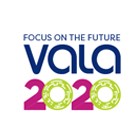A picture is worth a thousand words: Copyright literacy – a key digital capability for scholarly communication
VALA2020 SC4
Wednesday 12 February 2020, 2:45 – 3:50
Jennifer Warburton
- University of Melbourne
Wilfred Villareal
- University of Melbourne
Please tag your comments, tweets, and blog posts about this session: #vala2020 #sc4
View the presentation slides here:
Abstract
Digital channels offer researchers a range of opportunities for communicating the complexities of their research to broad audiences. Copyright literacy is an essential part of scholarly communication and is key to open practices in research. Copyright law is not aligned with how people typically use and share digital content on the web. Content sharing is ubiquitous, fallacies around what’s in the public domain persist, country-based copyright law, and a plethora of online digital tools (some with tricky licensing conditions) make the digital landscape a minefield for the unwary researcher.
Copyright literacy is a key digital capability for scholarly communication in a digital world.
What better way to deliver copyright literacy to early career researchers than via a professional and engaging competition that builds and applies digital capabilities, requires copyright-compliant entries, and culminates in a (copyright- compliant!) digital showcase of the finalists.
This talk will use the online International Visualise Your Thesis Competition for graduate researchers (PhD, MPhil, and Professional Doctorate (Research) candidates) as an interesting
case-study of the depth of naivety around fair-use of digital content sourced on the internet. It will explore common misconceptions and pitfalls for entrants sourcing 3rd party-created content and chart the development of explicit competition guidelines and bespoke resources to support both the students participating in the competition and the competition administrators, located in Australia and overseas. And it will pose the questions:
How can universities encourage a fair use mindset, and copyright due-diligence, to assist researchers avoid unauthorised use and copyright violations of content created by others?
And how can content creators take steps to protect their work?
This work is licensed under a Creative Commons Attribution-NonCommercial License.

